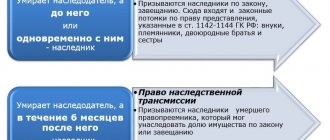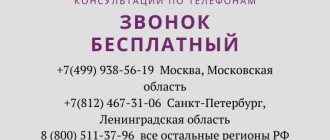Admission to a university opens up wide opportunities for a former applicant in the future. After graduating from the educational institution, he will receive a diploma and will be able to try to find a job in a well-paid position. Good prospects contribute to the growth of those willing to sit at a student desk. However, there are not enough places for everyone. Only the best will be able to enter. Not only knowledge, but also the availability of preferences will help facilitate enrollment. From this article, the reader will learn whether there are benefits for large families when entering a university, how to take advantage of them, and what laws regulate them.
Which categories of citizens are classified as having many children?
Speaking about the benefits for entering a university provided to children from large families, it is impossible not to mention the moment of registration of this status. There is no definition of this concept in current laws. It can only be found in the National Standards. After reading them, we can conclude that a family raising three or more children is considered large.
A large family can raise:
- Biological (natural) children.
- Children taken into care.
- Adopted children.
It is important that children are fully dependent on their parents. If they are raised in an orphanage, the family cannot be recognized as having many children.
A family is considered to have many children until the eldest child reaches 18 years of age. In case of admission to a university as a full-time student, the period is extended to 23 years.
Giving a family the status of a large family occurs on an application basis. After its confirmation, parents have the right to take advantage of a number of preferences. Among them you can find priority enrollment in kindergartens and schools. However, nothing is said about entering universities on a non-competitive basis. Laws adopted at the regional level can clarify this issue.
Standard conditions for admission to a university
Enrollment in a university occurs on the basis of internal regulations. It specifies the requirements for applicants and the conditions for accepting their documents. The internal rules of the educational institution are developed on the basis of federal and regional laws. This means that each region has its own regulations, on the basis of which it is possible to provide benefits for admission to children from large families.
Typically, admission to a university occurs in the following order:
- The deadline for recruiting applicants is established.
- Applicants' documents and applications are accepted.
- Selection is carried out based on the results of the Unified State Exam and internal exams.
- Students are enrolled in the first year.
Applicants who show the best results are admitted to the university; the rest will have to look for a place in other educational institutions. As a rule, the organization must allocate some places for preferential categories of citizens. They are accepted on a non-competitive basis.
If a beneficiary does not have enough space at a university, the administration of the institution has the right to refuse admission to applicants applying on a general basis.
Beneficiaries are not exempt from taking the Unified State Exam; despite this, they do not need to take part in the competition among applicants. They are enrolled in available places without additional examinations, unless this contradicts the internal rules of the educational institution.
The number of preferential places at the university is limited. The educational institution enrolls applicants who enjoy preferences on the budget. The rest of the students will have to pay for their education. This means that providing more free places is not possible for financial reasons. If upon admission there are many beneficiaries, only some of them will be enrolled in the university. The rest will have to enroll on a general basis, or choose another educational institution.
Can children from a large family enter a university at a discount?
It has already been said above that the list of preferential categories of citizens who can count on non-competitive admission to a university is determined on the basis of federal and regional laws. Unfortunately, most of them do not give children from large families special preferences for entering a university.
On a non-competitive basis, the following are enrolled in universities:
- Orphans.
- Disabled children.
- Children raised by a single disabled parent.
- Chernobyl victims.
- Children of military personnel.
- Demobilized conscripts.
- Participants in combat operations.
However, this does not mean that children from large families cannot enroll on a preferential basis. The university administration has the right to admit applicants on a non-competitive basis if this is permitted by the regional government. Therefore, you should contact the management of the educational institution in advance and clarify the availability of benefits.
If there are benefits for large families that allow enrolling in a university on a non-competitive basis, their effect applies exclusively to residents of a particular region.
If there is no benefit, a child from a large family will have to enroll in a university on a general basis. If a minor belongs to one of the preferential categories (for example, has the first or second disability group), he will be enrolled in the educational institution on a non-competitive basis.
Paid training
Graduates of schools, colleges, as well as graduates of higher educational institutions with other specialties can enter the university on a paid basis. The cost of training at the Institute of International Economic Relations is fixed for the entire period of education. Permanent discounts are provided for different preferential categories.
- Students who have only “Excellent” grades based on the results of the previous academic year. The discount is valid for one academic year.
- Applicants who have a medal “For exceptional academic achievements” or a certificate with honors of basic general education. The discount is valid for one academic year.
- Students from a large family who are receiving full-time higher education for the first time and are dependent on their parents. The discount is provided for one year with subsequent extension.
- Orphans and children under the guardianship (trusteeship) of an individual, institution (boarding school), studying full-time. The discount is provided for one year of study with subsequent extension.
This is interesting: What Bailiffs Cannot Seize
How can a child from a large family enter a university on a non-competitive basis?
Parents with many children should take care of their children’s education in advance, long before entering university. This will allow you not to be afraid that the child will not be able to enroll without benefits. It should be remembered that with good academic performance and participation in competitions, enrollment will be carried out without selection. The following will be able to take advantage of these preferences:
- Winners and prize-winners of the last stage of the Olympiad for schoolchildren.
- Prize-winners and winners of the Olympic Games.
- Medalists of the European and World Championships.
Parents should support their child’s participation in all kinds of competitions and Olympiads. Having shown good results, he will not go unnoticed and will be able to enter any university in the country without competition. This may require attending paid courses and tutors. However, such investments will pay off after graduation.
If your child does not belong to the categories that are enrolled in a university on a preferential basis, do not worry. He will be able to act on his own. This will require good knowledge and preparation. If you are unsure of the success of independent admission, you should give preference to less popular universities with a small number of people willing to enroll in one place.
What documents will a child from a large family need to enroll in a university?
Most universities in the country do not provide benefits for children from large families upon admission. Therefore, when submitting an application to an educational institution, you must bring with you a standard list of documents:
- School certificate.
- Passport.
- 4 photographs, size 3x4.
- Medical certificate 086-U.
- Certificate of external independent assessment.
The applicant must provide both originals and copies of documents. If there are awards received for participation in olympiads or competitions, they can also be provided. Here we are not talking about victories in intra-school or city competitions. For admission, only all-Russian competitions and olympiads are important.
If a child raised in a large family is an orphan or disabled, he should be provided with supporting documents. This will provide an opportunity to enter a university on a non-competitive basis.
Are large families entitled to benefits when enrolling in a university, college or technical school?
Every person has the right to receive an education.
Unfortunately, some families, for objective reasons, cannot afford to pay for their offspring’s studies in higher educational institutions. In situations where parents do not have enough money not only to maintain, but also to raise their own children, they rely on government support and financial assistance.
In this case, we are talking about children getting an education. This is very important, since studying at an institute, university, college, college is the guarantee that a child will be able to find a good job in the future and provide for himself financially.
Are there benefits for large families when enrolling their children in higher education institutions? Once the children reach the age of eighteen, the status of a large family is automatically removed . It is for this reason that all benefits disappear.
For example, if a child is studying at a higher educational institution, then the current status will not be removed. It lasts until he reaches twenty-three years of age.
Some benefits for families relate to children's education. For example, a father and mother receive a certain amount of money annually to purchase a school uniform or various supplies (stationery).
Of course, this is not enough. Children need to not only be fed, clothed, and provided with all the necessary things, but also given an education. Without it, they will not be able to find their place in society.
To become an independent, self-sufficient member of society, you need to get an education. Unfortunately, families with many children cannot afford this. In many universities, tuition is paid.
You can enroll in free education only if you have certain benefits, as there is always a lot of competition. That is why children from the families in question must have state support.
Such citizens receive significantly less assistance from local authorities. Often, all this is limited to the possibility of organizing vacations for minor children or providing living space. Unfortunately, this doesn't happen often. This is rather an exception.
Families do not need to wait on a waiting list to enroll in preschool. Children from such families are accepted into any educational institutions at their place of residence. They do not need to register for kindergarten.
However, when entering a university or academy, there is absolutely no guidance in the current legislation. Here it is customary to use exclusively general legislative norms that relate to different preferential categories.
If a child decides to go to university, he may qualify for the following benefits:
- children who took part in Olympiads and also won them can be enrolled in universities outside the main qualifying competition;
- Children of Chernobyl survivors enjoy special advantage;
- There is a quota for the disabled and orphans.
Children from large families do not fall into any of these categories. There are no specific benefits for them.
This norm is not specified in any legislative act. However, many higher education institutions include it in their documentation.
What benefits will children from large families be able to take advantage of at the university?
Despite the lack of benefits when entering a university, some institutions provide children from large families with special preferences. Their list is given in the organization's charter. The administration can provide small assistance in the form of:
- Free food in the canteen.
- Providing a free room in a hostel.
- Credits to the budget.
In addition, children from large families have the right to enjoy standard benefits for travel on public transport.
What training benefits are provided?
In Russia, at the Federal level, the state provides comprehensive support to citizens with many children. When studying at universities, state-funded applicants are provided with:
- 20% quota for enrollment in secondary or higher educational institutions;
- 50% discount on tuition fees in higher and secondary educational institutions;
- A scholarship in the amount of half the minimum wage for applicants with an average score above 4.
In addition, in certain regions, children from MS receive compensation for travel to the place of study, for uniforms and meals in the canteen of the educational institution.
The listed benefits are valid only until the applicant reaches 23 years of age and during military service.
Among other things, in many educational institutions, when the opportunity arises to switch from a paid basis to a budget one due to good academic performance, applicants from large families have priority when freeing up a budget place.







